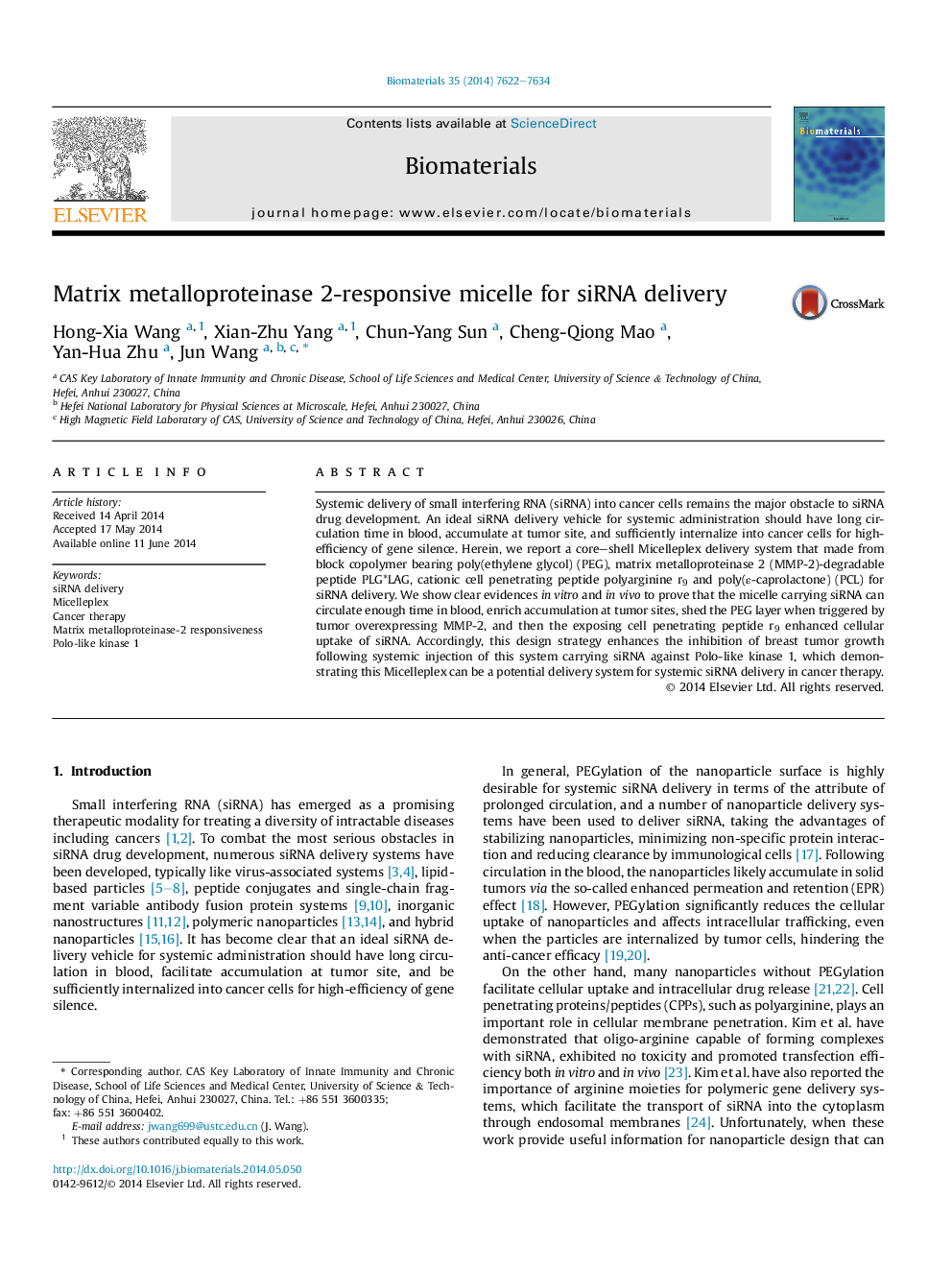| Article ID | Journal | Published Year | Pages | File Type |
|---|---|---|---|---|
| 10227256 | Biomaterials | 2014 | 13 Pages |
Abstract
Systemic delivery of small interfering RNA (siRNA) into cancer cells remains the major obstacle to siRNA drug development. An ideal siRNA delivery vehicle for systemic administration should have long circulation time in blood, accumulate at tumor site, and sufficiently internalize into cancer cells for high-efficiency of gene silence. Herein, we report a core-shell Micelleplex delivery system that made from block copolymer bearing poly(ethylene glycol) (PEG), matrix metalloproteinase 2 (MMP-2)-degradable peptide PLG*LAG, cationic cell penetrating peptide polyarginine r9 and poly(ε-caprolactone) (PCL) for siRNA delivery. We show clear evidences in vitro and in vivo to prove that the micelle carrying siRNA can circulate enough time in blood, enrich accumulation at tumor sites, shed the PEG layer when triggered by tumor overexpressing MMP-2, and then the exposing cell penetrating peptide r9 enhanced cellular uptake of siRNA. Accordingly, this design strategy enhances the inhibition of breast tumor growth following systemic injection of this system carrying siRNA against Polo-like kinase 1, which demonstrating this Micelleplex can be a potential delivery system for systemic siRNA delivery in cancer therapy.
Related Topics
Physical Sciences and Engineering
Chemical Engineering
Bioengineering
Authors
Hong-Xia Wang, Xian-Zhu Yang, Chun-Yang Sun, Cheng-Qiong Mao, Yan-Hua Zhu, Jun Wang,
